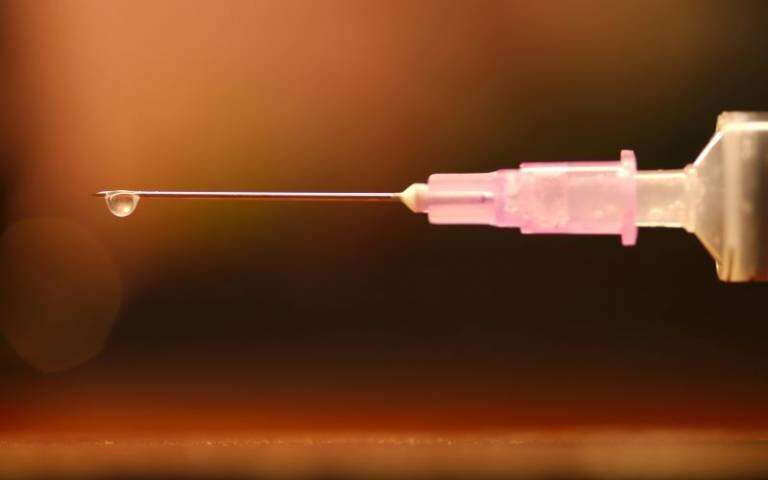Calls for opioid agonist treatments to be used in the treatment of injecting-related infections

Medications such as buprenorphine and methadone should be used to help treat patients with opioid use disorder who come to hospital with injecting-related infections, finds new research from UCL and UNSW, Sydney.
Injecting-related bacterial and fungal infections are an increasingly common causes of pain, disability, and death among people who inject drugs.
Yet current treatment has tended to focus on the use of antibiotics and surgery, without addressing the underlying issues of substance use disorders.
The new study, published in PLOS Medicine, used data from the National Drug and Alcohol Centre (NDARC) at UNSW, Sydney, to identify 8,943 people with opioid use disorders who had been admitted to hospital with injecting-related infections in New South Wales, Australia, between 2011 and 2018.
The results found that, in these cases, the use of opioid agonist treatment ("OAT"; including methadone and buprenorphine) was associated with both lower risks of death and of rehospitalization with injecting-related infections—even though both outcomes remained common.
1,481 participants (17%) died an average of six years after their initial hospitalization, and 3,653 participants (41%) were rehospitalized an average of three years later.
Use of OAT after hospital discharge was associated with a 37% lower hazard of death and an 11% lower hazard of rehospitalization. For example, by one year, 2.4% of study participants taking OAT had died, compared to 4.3% of participants not taking OAT. Similarly, by one year 12.7% of participants taking OAT were hospitalized with another injecting-related infection compared to 14.4% of participants not taking OAT.
As a result, researchers are calling for opioid agonist treatment (OAT) to be considered as part of a multi-component treatment strategy for injecting-related infections.
Lead author, Dr. Thomas Brothers (UCL Institute of Epidemiology & Health Care), said, "Our research found that opioid agonist treatment reduces rehospitalization and deaths, so we believe that health systems and hospitals should be facilitating access to opioid agonist treatment for these patients.
"Access to initiate OAT is unfortunately uncommon in many hospitals in the U.K., North America, and Australia, where patients are offered highly specialized—and often very expensive—antibiotics and surgery, but their underlying substance use-related needs are not addressed.
"Specialists should consider OAT in their treatment planning and make sure there are prescribers available with the expertise to initiate OAT. Some hospitals have done this by establishing specialized addiction medicine consultation teams."
Previous research has found that opioid agonist treatment has been associated with decreased risks of other injecting-related health harms, including HIV infection, hepatitis C infection and overdose death.
The new study by Dr. Brothers and colleagues suggests it may also be associated with reduced risks of recurrence after injecting-related infections.
Study limitations
The use of routinely collected administrative data, which lack information on other risk factors for injecting-related infections including injecting practices, injection stimulant use, housing status, and access to harm reduction services (i.e., needle exchange, supervised injecting sites).
Researchers also lacked information on OAT medication dosages.
More information: Thomas D. Brothers et al, Opioid agonist treatment and risk of death or rehospitalization following injection drug use–associated bacterial and fungal infections: A cohort study in New South Wales, Australia, PLOS Medicine (2022). DOI: 10.1371/journal.pmed.1004049




















